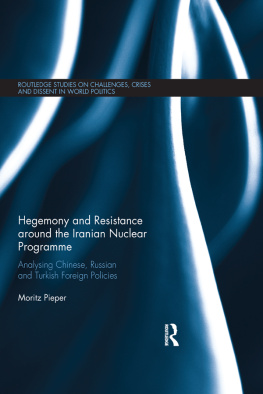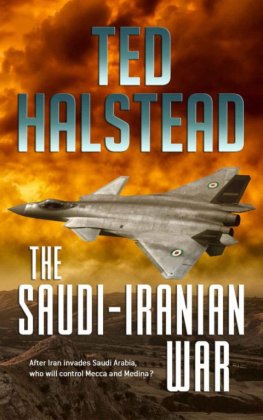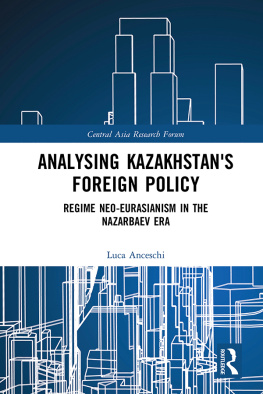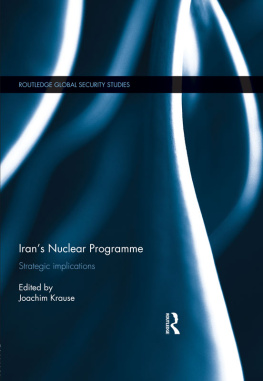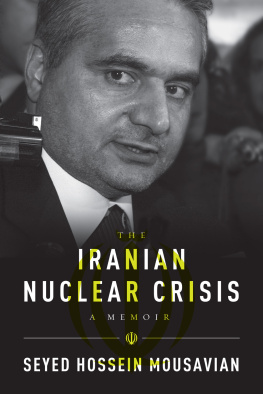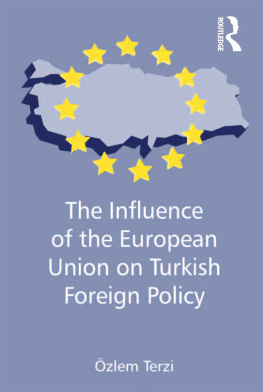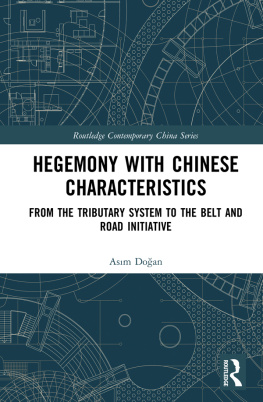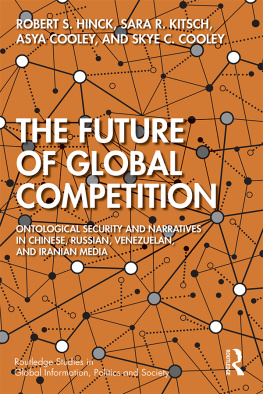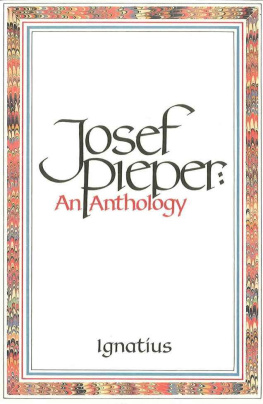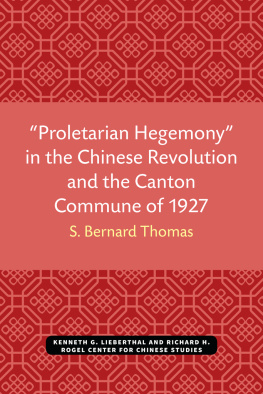Hegemony and Resistance around the Iranian Nuclear Programme
The Iranian nuclear crisis is a proxy arena for competing visions about the functioning of international relations.
This book is the first to provide comprehensive and comparative analyses to conceptualise the interaction between hegemonic structures and those actors resisting them using the Iranian nuclear case as an illustration. It analyses the foreign policies of China, Russia and Turkey towards the Iranian nuclear programme and thereby answers the question to what extent these policies are indicative of a security culture that resists hegemony. Based on 70 elite interviews with experts and decision-makers closely involved with the Iranian nuclear file, it analyses resistance to hegemony across its ideational, material and institutional framework conditions. The cases examined show how compliance on the part of China, Russia and Turkey with parts of US approaches to the Iranian nuclear conflict has been selective and how US policy preferences in the Iran dossier have been resisted on other occasions. As such, the Iran nuclear case serves as an illustration to shed light on the contemporaneous interaction of the forces of consent and coercion in international politics.
This book will be of key interest to scholars, students and practitioners in International Relations, Security Studies and Foreign Policy Analysis.
Moritz Pieper is Lecturer in International Relations at the University of Salford, UK. He has been a visiting Research Fellow at China Foreign Affairs University (CFAU), Beijing, the German Institute for International and Security Affairs, Brussels and at the School of Oriental and African Studies (SOAS), London.
Routledge Studies on Challenges, Crises and Dissent in World Politics
Series editors
Karoline Postel-Vinay
Centre for International Studies, and Research (CERI) France
and
Nadine Godehardt
German Institute for International and Security Affairs, Germany
This new series focuses on challenges, crises and dissent in world politics and the major political issues that have surfaced in recent years. It welcomes a wide range of theoretical and methodological approaches including critical and postmodern studies, and aims to improve our present understanding of global order through the exploration of major challenges to inter/national and regional governability, the effects of nationalism, extremism, weak leadership and the emergence of new actors in international politics.
Empires of Remorse
Narrative, Postcolonialism and Apologies for Colonial Atrocity
Tom Bentley
Crisis and Institutional Change in Regional Integration
Edited by Sabine Saurugger and Fabien Terpan
Violent Non-State Actors
From Anarchists to Jihadists
Ersel Aydinli
Power-Sharing
Empirical and Normative Challenges
Edited by Allison McCulloch and John McGarry
Hegemony and Resistance around the Iranian Nuclear Programme
Analysing Chinese, Russian, and Turkish Foreign Policies
Moritz Pieper
First published 2017
by Routledge
2 Park Square, Milton Park, Abingdon, Oxon OX14 4RN
and by Routledge
711 Third Avenue, New York, NY 10017
Routledge is an imprint of the Taylor & Francis Group, an informa business
2017 Moritz Pieper
The right of Moritz Pieper to be identified as author of this work has been asserted by him in accordance with sections 77 and 78 of the Copyright, Designs and Patents Act 1988.
All rights reserved. No part of this book may be reprinted or reproduced or utilised in any form or by any electronic, mechanical, or other means, now known or hereafter invented, including photocopying and recording, or in any information storage or retrieval system, without permission in writing from the publishers.
Trademark notice: Product or corporate names may be trademarks or registered trademarks, and are used only for identification and explanation without intent to infringe.
British Library Cataloguing in Publication Data
A catalogue record for this book is available from the British Library
Library of Congress Cataloging in Publication Data
Names: Pieper, Moritz, author.
Title: Hegemony and resistance around the Iranian nuclear programme : analysing Chinese, Russian, and Turkish foreign policies / Moritz Pieper.
Description: Abingdon, Oxon ; New York, NY : Routledge, 2017. | Series: Routledge studies on challenges, crises and dissent in world politics ; 5 | Includes bibliographical references and index.
Identifiers: LCCN 2016049107| ISBN 9781138205666 (hardback) | ISBN 9781315466378 (ebook)
Subjects: LCSH: Nuclear nonproliferationIran. | Nuclear nonproliferationInternational cooperation. | Nuclear nonproliferationGovernment policyChina. | Nuclear nonproliferationGovernment policyRussia (Federation) | Nuclear nonproliferationGovernment policyTurkey. | Hegemony.
Classification: LCC JZ5675 .P54 2017 | DDC 327.1/7470955dc23
LC record available at https://lccn.loc.gov/2016049107
ISBN: 978-1-138-20566-6 (hbk)
ISBN: 978-1-315-46637-8 (ebk)
Typeset in Times New Roman
by Wearset Ltd, Boldon, Tyne and Wear
Research for this book let me travel around the globe from Turkey, Russia and the United States, to China and all over Europe. Managing such a project would not have been possible without the help and support of many people. First and foremost, I want to thank Dr Tom Casier, who has been my primary advisor and mentor in all matters related to my doctoral dissertation out of which this book has emerged. His enduring faith in my research and persistent encouragement was as motivating as it was inspiring, and his perceptive yet congenial supervision made the journey a very enjoyable one. I equally wish to thank Dr Tugba Basaran, whose sharp comments helped to crystallise many thoughts in the making and flesh out the unspoken word behind the lines. Throughout this journey at the University of Kents Brussels campus, I was fortunate to have been surrounded by many fantastic colleagues who have enhanced my research experience in so many ways. I thank above all Octavius Pinkard, who has travelled with me around the globe and back to Bonnefooi in the course of a PhD programme that has turned academic interactions into a friendship for a lifetime. I also wish to thank John Heieck, Teresa Cabrita, Shahriar Sharei, Tomislava Penkova, Shubranshu Mishra, Klaudia Tani, Richa Kumar, Inez Summers and Michael Sewell for making BSIS such a pleasant place to work.
My international research trips would not have been possible without the financial support of a number of organisations. Primarily, I was honoured to have received a 50th Anniversary Doctoral Scholarship from the University of Kent. This privilege gave me the financial independence to embark on this project in the first place. In addition, external travel grants were made available by the Centre for East European Language Based Area Studies (CEELBAS), the Association for the Study of the Middle East and Africa (ASMEA), the International Studies Association (ISA), the SETA Foundation and the Santander Travel Bursary Scheme.

